Abstract
Increasingly, treatment choices leading to the same survival outcome can be offered to cancer patients (e.g. mastectomy or conservative surgery in early breast cancer). Two approaches available for post-orchidectomy, stage I patients with non-seminomatous germ cell tumours of the testis (NSGCTT), particularly those at high risk of relapse, include immediate adjuvant chemotherapy (two courses) or surveillance, with chemotherapy (typically four courses) given only on relapse. The aim of this study was to investigate which approach patients prefer. Questionnaires were given to newly diagnosed NSGCTT patients, to patients with previous experience of the two options and to non-cancer controls, including specialist testicular tumour oncologists. Participants were asked to choose between immediate chemotherapy, surveillance or for the doctor to decide, at recurrence risk levels ranging from 10% to 90%. Questionnaires were returned by 207 subjects in nine different groups. The risk thresholds at which subjects' management preference changed, within apparently homogeneous groups, varied greatly, although at least one subject in each group selected adjuvant chemotherapy at the lowest (10%) level of risk. Subjects tended to favour options of which they had previous experience. Cancer patients wanted the doctor to decide more frequently than controls. The wide variability observed makes it difficult to predict which option an individual will select. Personality factors and personal circumstances, other than specific experience and knowledge, are obviously influential. Many patients would prefer their doctor to decide, but variability among oncologists is as great as that among their patients.
Full text
PDF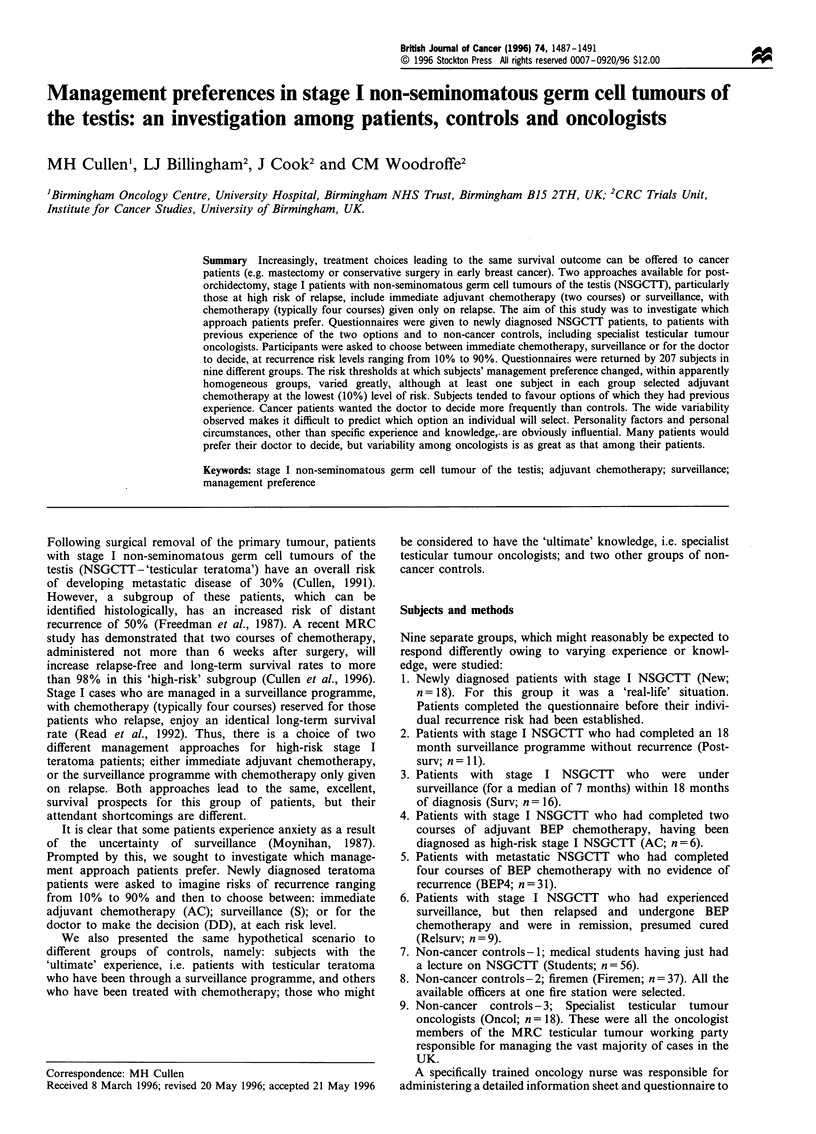
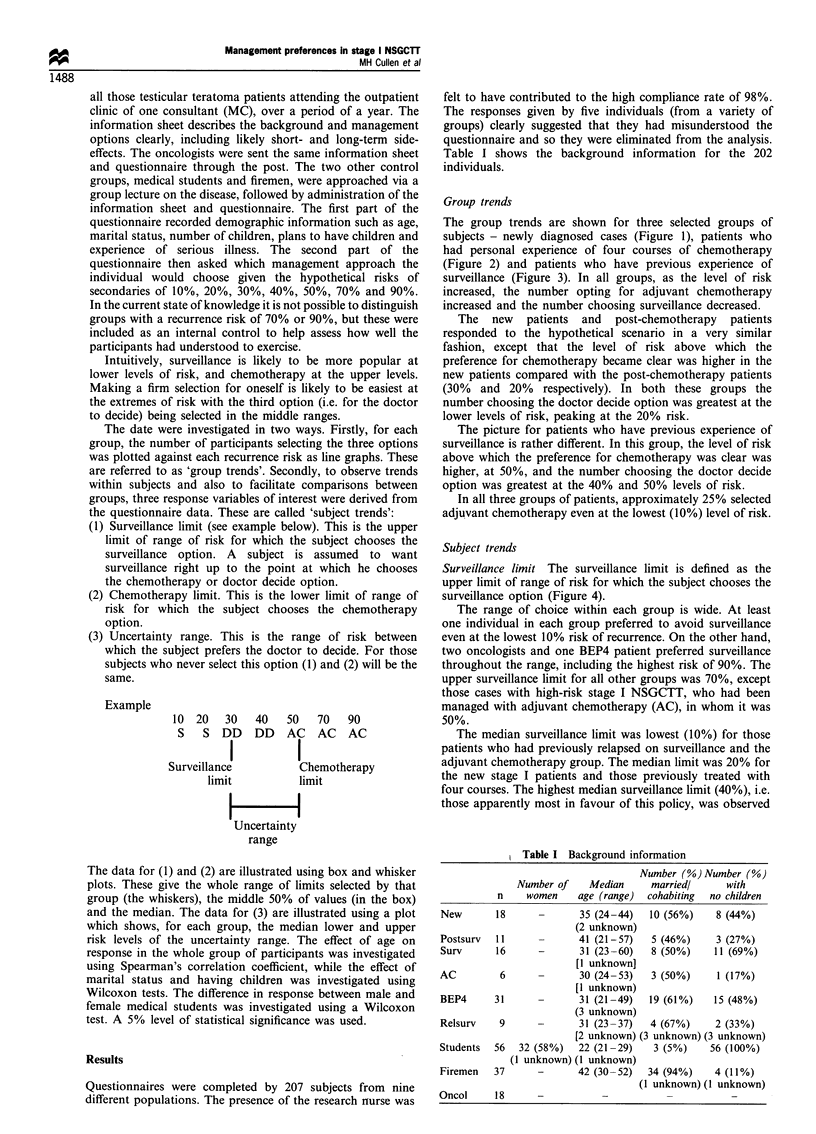
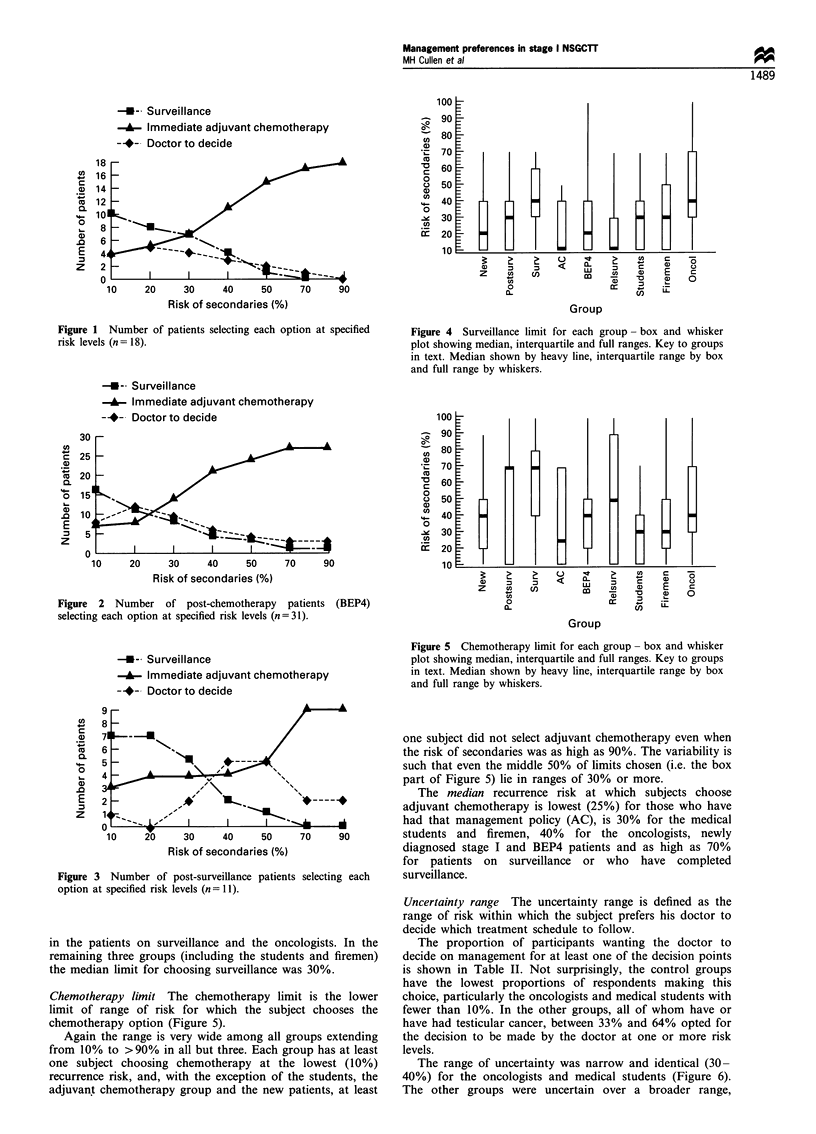
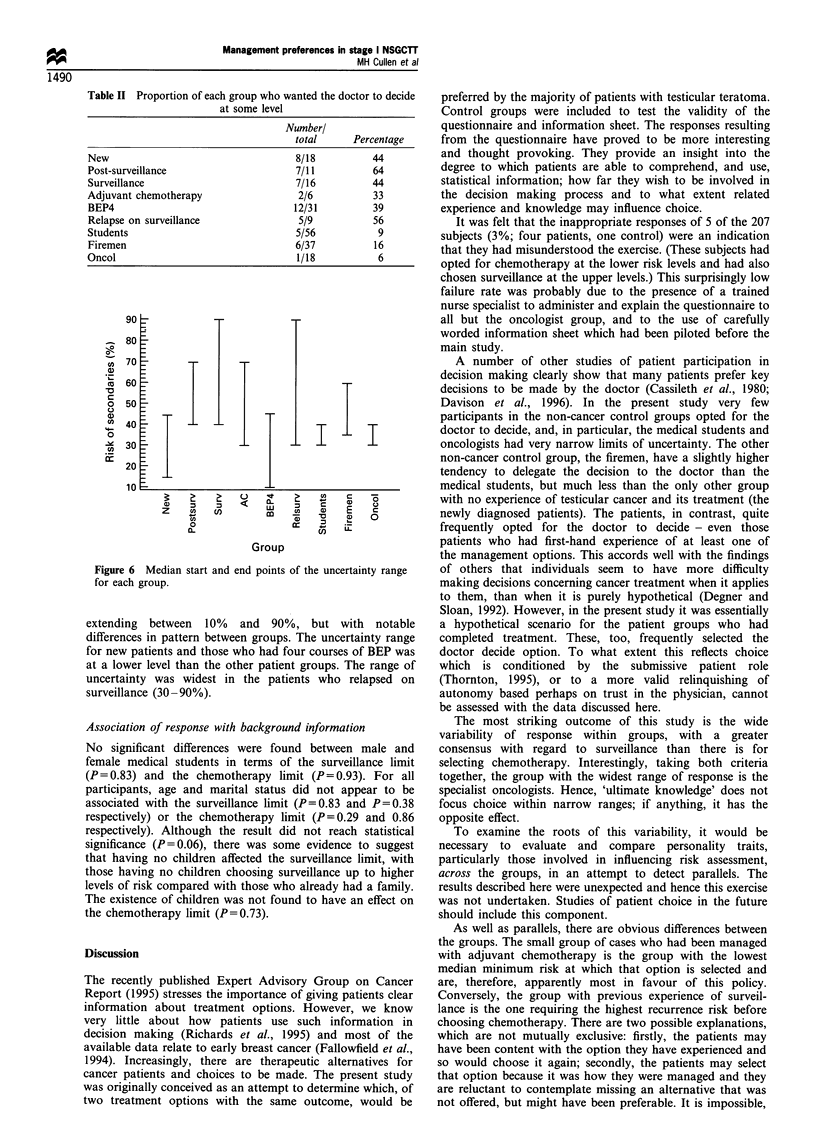
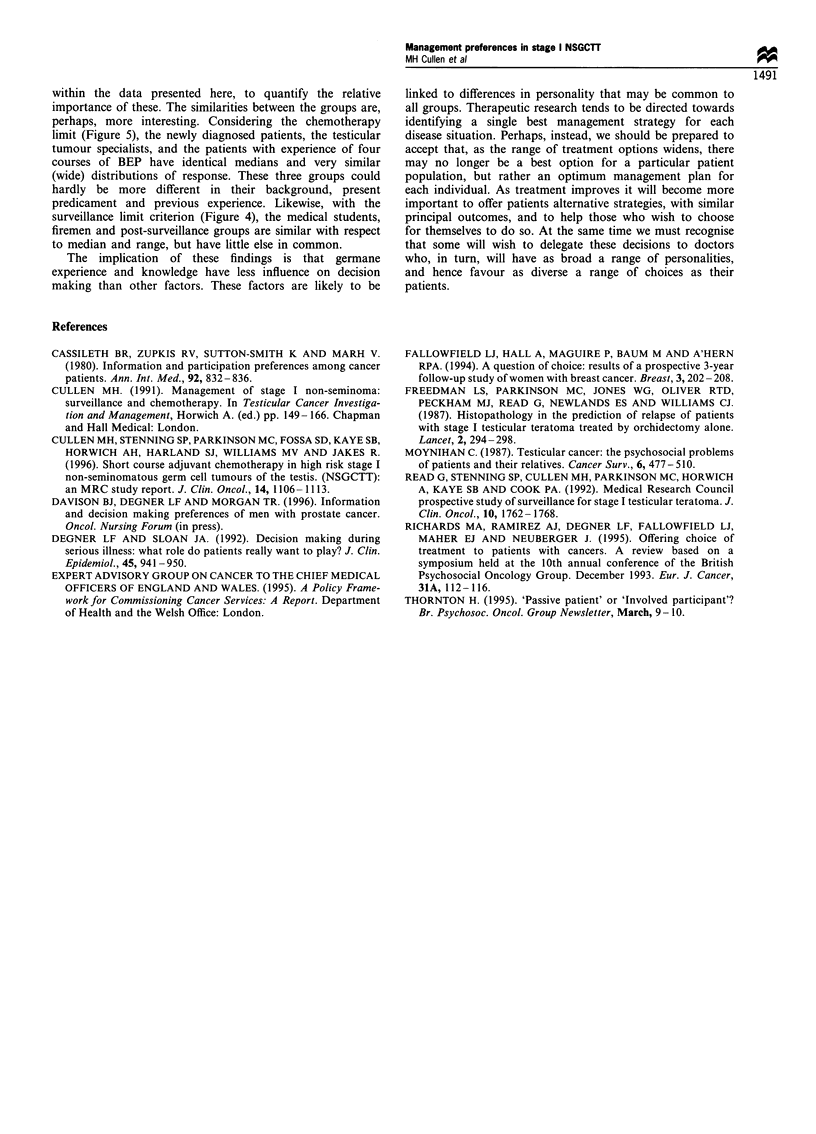
Selected References
These references are in PubMed. This may not be the complete list of references from this article.
- Cassileth B. R., Zupkis R. V., Sutton-Smith K., March V. Information and participation preferences among cancer patients. Ann Intern Med. 1980 Jun;92(6):832–836. doi: 10.7326/0003-4819-92-6-832. [DOI] [PubMed] [Google Scholar]
- Cullen M. H., Stenning S. P., Parkinson M. C., Fossa S. D., Kaye S. B., Horwich A. H., Harland S. J., Williams M. V., Jakes R. Short-course adjuvant chemotherapy in high-risk stage I nonseminomatous germ cell tumors of the testis: a Medical Research Council report. J Clin Oncol. 1996 Apr;14(4):1106–1113. doi: 10.1200/JCO.1996.14.4.1106. [DOI] [PubMed] [Google Scholar]
- Degner L. F., Sloan J. A. Decision making during serious illness: what role do patients really want to play? J Clin Epidemiol. 1992 Sep;45(9):941–950. doi: 10.1016/0895-4356(92)90110-9. [DOI] [PubMed] [Google Scholar]
- Freedman L. S., Parkinson M. C., Jones W. G., Oliver R. T., Peckham M. J., Read G., Newlands E. S., Williams C. J. Histopathology in the prediction of relapse of patients with stage I testicular teratoma treated by orchidectomy alone. Lancet. 1987 Aug 8;2(8554):294–298. doi: 10.1016/s0140-6736(87)90889-0. [DOI] [PubMed] [Google Scholar]
- Moynihan C. Testicular cancer: the psychosocial problems of patients and their relatives. Cancer Surv. 1987;6(3):477–510. [PubMed] [Google Scholar]
- Read G., Stenning S. P., Cullen M. H., Parkinson M. C., Horwich A., Kaye S. B., Cook P. A. Medical Research Council prospective study of surveillance for stage I testicular teratoma. Medical Research Council Testicular Tumors Working Party. J Clin Oncol. 1992 Nov;10(11):1762–1768. doi: 10.1200/JCO.1992.10.11.1762. [DOI] [PubMed] [Google Scholar]
- Richards M. A., Ramirez A. J., Degner L. F., Fallowfield L. J., Maher E. J., Neuberger J. Offering choice of treatment to patients with cancers. A review based on a symposium held at the 10th annual conference of The British Psychosocial Oncology Group, December 1993. Eur J Cancer. 1995;31A(1):112–116. doi: 10.1016/0959-8049(94)00478-n. [DOI] [PubMed] [Google Scholar]


